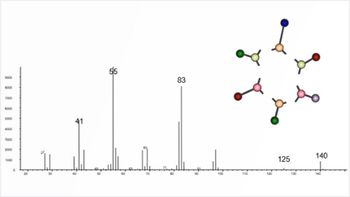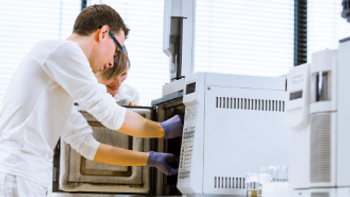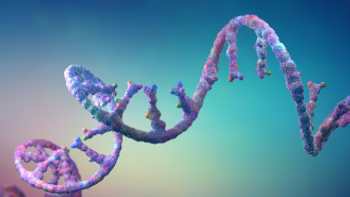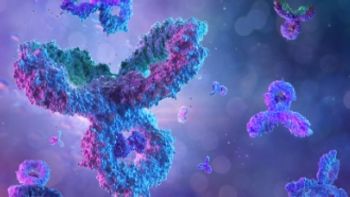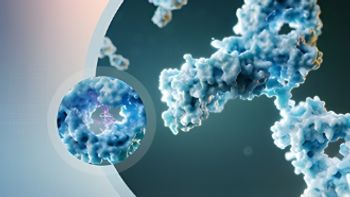
Top 3 Easiest Ways to Boost Your UHPLC Chromatography Performance for Biomolecule Analysis
Thursday, September 15th, 2022 at 10am EDT|7am PDT|3pm BST|4pm CEST Thursday, September 15th, 2022 at 2pm EDT|11am PDT|7pm BST|8pm CEST Want to increase the sensitivity of your UHPLC and LC–MS separations of peptides and proteins and save solvent without having to invest in a specialized microflow system? Learn how to achieve these goals with new 1.5 mm ID UHPLC columns packed with Fused-Core particles.
Register Free:
Event Overview:
EA capital expenditure isn’t the only way to increase sensitivity from your ultrahigh-pressure liquid chromatography (UHPLC) and LC–mass spectrometry (LC–MS) systems. Could a simple column switch be the solution? The newly introduced 1.5 mm I.D. UHPLC columns from Advanced Materials Technology enable analysts to improve the chromatographic performance of biomolecule separations. These smaller I.D. columns are an easy to implement microflow solution that do not require specialized microflow systems. In comparison to standard 2.1 mm I.D. columns, there is up to a 2x increase in observed area, which leads to increased sensitivity. With LC–MS analysis, the effect of this small I.D. is higher ionization efficiencies, which yields increased peak intensities and areas. In addition to the sensitivity increase, the use of 1.5 mm I.D. columns reduces mobile phase consumption by at least 50%, allowing solvents to last longer and generating less waste for disposal, which is important to labs which are interested in reducing their chemical footprint. This webinar will focus specifically on these benefits for protein and peptide separations.
Key Learning Objectives:
- Learn how using 1.5 mm I.D. columns will increase sensitivity for bioseparations
- Understand the ease of implementing 1.5 mm I.D. columns into bio-related workflows
- Optimize existing UHPLCs for use with 1.5 mm I.D. columns for biomolecule separations
Who Should Attend:
- Scientists interested in increasing the sensitivity and signal intensity of their peptides and proteins as well as reducing solvent consumption.
Stephanie A. Schuster, Ph.D.
Senior Technical Support Scientist
Advanced Materials Technology, Inc.
Dr. Stephanie A. Schuster earned her Bachelor of Arts degree in Chemistry and Biochemistry in 1998 at La Salle University, where she graduated cum Laude from the Honors Program. She earned her Ph.D. in 2007 under the guidance of Professor Joe P. Foley at Drexel University. Her doctoral dissertation focused on the use of vesicles as pseudostationary phases in capillary electrophoresis. This system was investigated as a potential in vitro model for intestinal permeability.
After earning her Ph.D. at Drexel, Dr. Schuster joined Atlantic Diagnostic Laboratories (ADL), a combined clinical and forensic testing laboratory. While at ADL, she authored a procedure manual, and co-authored or contributed to other documentation, in preparation for College of American Pathology (CAP) inspection. She was instrumental in implementing general laboratory improvements (appropriate labeling, daily maintenance logs, etc.) in accordance with CAP guidelines. Dr. Schuster also assisted with method development using an Applied Biosystems 3200 Q TRAP LC/MS/MS System.
Beginning in June of 2009, Dr. Schuster joined Advanced Materials Technology, Inc. (AMT) located in Wilmington, DE as a research scientist working with Dr. Jack Kirkland, providing contributions to the commercial development of products specifically designed for the separation of peptides and proteins. During the summer of 2015, Dr. Schuster began to transition away from research and development activities and more toward applications development and quality assurance. She is currently a Senior Technical Support Scientist at AMT. As such, Dr. Schuster works closely with AMT’s worldwide network of distributors and assists customers with optimizing and trouble-shooting their applications. Her primary interests are separations and novel materials development. Dr. Schuster has several peer-reviewed articles and is currently a member of the Chromatography Forum of the Delaware Valley.
Register Free:
Newsletter
Join the global community of analytical scientists who trust LCGC for insights on the latest techniques, trends, and expert solutions in chromatography.

